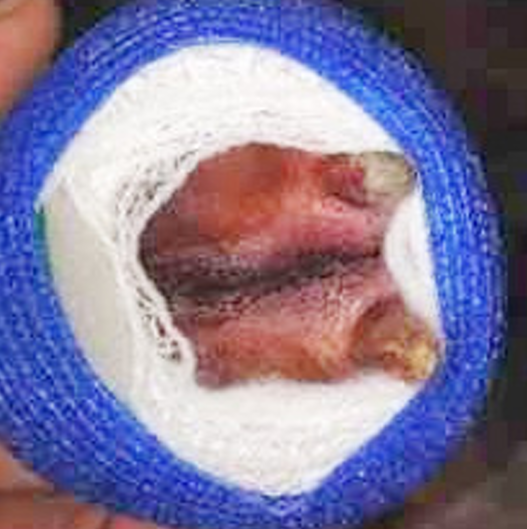Contact your veterinary surgeon in the event of:
- Slipping or changes to the shape of the dressing on the limb
- Signs of discomfort, such as chewing of the dressing / splint / cast
- A bad smell or unexplained soiling / wetness of the dressing / splint / cast
- Any sores or swellings developing associated with the splint or cast
- Your pet becoming lethargic or not eating
- Toes are swollen
Dressing changes:
- Your pet will require dressing changes, so please make regular appointments for them.
- Your pet should be starved from midnight prior to a dressing change as sedation may be required, but water should be left accessible.
- The frequency of dressing changes will be determined by your pet’s progress and should be discussed with your veterinary surgeon or us.
Complications:
It is essential that you follow instructions carefully as complications associated with dressings can be very serious. Complications can include skin sores from rubbing, wound infections, disuse muscle wastage, reduced joint range of motion, limb necrosis secondary to swelling and blood supply compromise.
If you have any queries or concerns about your pet’s dressing, cast or splint, please discuss this with a veterinary surgeon or contact us.

